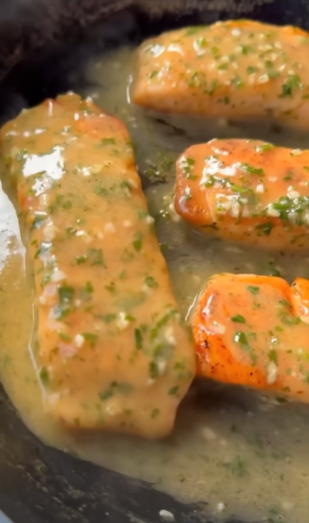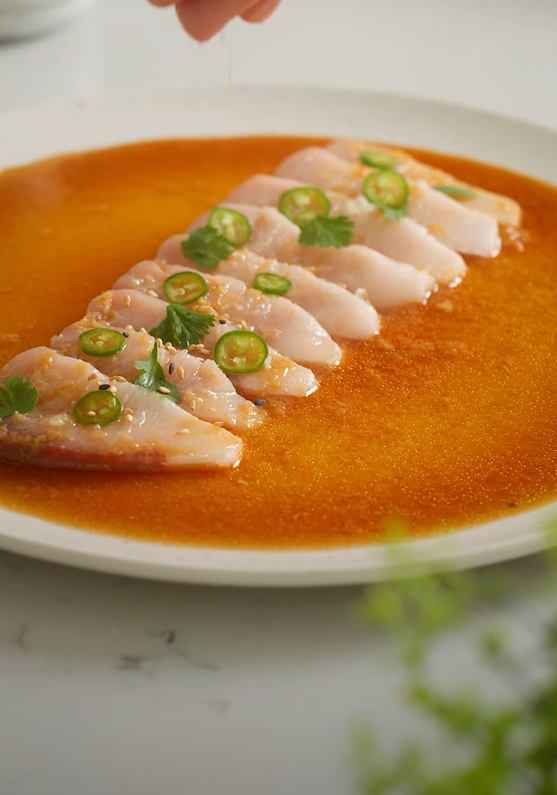There’s something absolutely magical about the moment when you bite into a perfectly crafted matcha crinkle cookie. The delicate, earthy sweetness of premium matcha powder meets the familiar comfort of a soft, chewy cookie center surrounded by that signature crackled exterior. I’ve spent countless hours perfecting this recipe, and I’m thrilled to share every secret with you.
These aren’t your ordinary cookies. They represent a beautiful marriage between traditional Japanese tea culture and beloved American baking techniques. Each cookie delivers a sophisticated flavor profile that’s both familiar and exotic, making them perfect for afternoon tea, special occasions, or whenever you want to elevate your dessert game.
Understanding Matcha: The Heart of These Cookies
Matcha: Finely ground powder made from specially grown and processed green tea leaves, offering a unique umami-sweet flavor with earthy undertones and vibrant green color.
Ceremonial Grade Matcha: The highest quality matcha powder, characterized by its brilliant green color, smooth texture, and delicate flavor without bitterness.
Culinary Grade Matcha: A more affordable option specifically designed for baking and cooking, with a stronger flavor that holds up well in recipes.
Crinkle Effect: The characteristic cracked appearance on cookie surfaces, created by the interaction between powdered sugar coating and cookie expansion during baking.
The quality of your matcha will dramatically impact your final result. I always recommend investing in ceremonial or premium culinary grade matcha for the best flavor and that stunning emerald color that makes these cookies so visually striking.
Essential Ingredients and Their Roles
| Ingredient | Quantity | Purpose | Substitution Notes |
|---|---|---|---|
| All-purpose flour | 2 cups | Structure and texture | Can substitute up to 1/4 cup with almond flour |
| Matcha powder | 3 tablespoons | Flavor and color | Use only high-quality matcha |
| Baking powder | 1 teaspoon | Leavening agent | Cannot substitute |
| Salt | 1/2 teaspoon | Flavor enhancement | Use fine sea salt |
| Unsalted butter | 1/2 cup | Fat content and texture | Room temperature is crucial |
| Granulated sugar | 3/4 cup | Sweetness and structure | Can reduce by 2 tablespoons |
| Brown sugar | 1/2 cup | Moisture and chewiness | Packed measurement |
| Large eggs | 2 | Binding and moisture | Room temperature preferred |
| Vanilla extract | 1 teaspoon | Flavor complement | Pure vanilla only |
| Powdered sugar | 1 cup | Coating and crinkle effect | Essential for appearance |
Step-by-Step Preparation Method
Preparation Phase
I always start by gathering all my ingredients and bringing them to room temperature. This might seem like a small detail, but it makes an enormous difference in how well everything incorporates together.
Dry Ingredient Mixing
- Whisk together flour, matcha powder, baking powder, and salt in a medium bowl
- Sift the mixture twice to ensure the matcha is evenly distributed
- Set aside while preparing wet ingredients
Creating the Perfect Cookie Dough
Creaming Process The foundation of any great cookie lies in properly creaming your butter and sugars. I use my stand mixer on medium speed for exactly three minutes until the mixture becomes light and fluffy. This incorporation of air is what gives these cookies their perfect texture.
Egg Integration Add eggs one at a time, beating well after each addition. The mixture might look slightly curdled at first, but don’t worry – this is completely normal. The vanilla extract goes in with the second egg.
Combining Wet and Dry Ingredients Here’s where patience becomes your best friend. I add the flour mixture in three additions, mixing on low speed just until combined. Overmixing develops too much gluten, resulting in tough cookies instead of the tender, chewy texture we’re after.
Chilling and Shaping
The dough needs to chill for at least two hours, though I prefer overnight chilling when possible. This step serves multiple purposes: it firms up the dough for easier handling, allows flavors to meld, and helps achieve that perfect crinkle effect.
| Chilling Time | Dough Consistency | Shaping Difficulty | Final Texture |
|---|---|---|---|
| 1 hour | Slightly soft | Moderate | Good |
| 2-4 hours | Firm | Easy | Better |
| Overnight | Perfect | Very easy | Best |
| 24+ hours | Very firm | May need slight warming | Excellent |
The Art of Rolling and Coating
Once your dough is properly chilled, the magic begins. I scoop the dough into portions using a medium cookie scoop (about 2 tablespoons each). Rolling them into perfect spheres takes a gentle touch – overworking will warm the dough and affect the final texture.
The powdered sugar coating is where these cookies get their signature appearance. I roll each dough ball generously in powdered sugar, ensuring complete coverage. As the cookies bake, the dough expands while the sugar coating stays put, creating those beautiful cracks that give crinkle cookies their name.
Baking to Perfection
Preheat your oven to 350°F (175°C) and line your baking sheets with parchment paper. I space the cookies about 2 inches apart – they don’t spread dramatically, but you want adequate air circulation.
The baking time is crucial. I bake mine for exactly 10-12 minutes, until the edges are set but the centers still look slightly soft. They’ll continue cooking on the hot pan after removal, so don’t overbake.
Nutritional Information and Dietary Considerations
| Nutritional Aspect | Per Cookie (Makes 24) | Notes |
|---|---|---|
| Calories | 145 | Moderate calorie content |
| Total Fat | 4.2g | From butter primarily |
| Saturated Fat | 2.6g | Consider portion size |
| Cholesterol | 25mg | From eggs and butter |
| Sodium | 95mg | From salt and baking powder |
| Carbohydrates | 26g | Main energy source |
| Fiber | 0.8g | From matcha and flour |
| Sugar | 18g | Natural and added sugars |
| Protein | 2.1g | From eggs and flour |
| Antioxidants | High | From matcha catechins |
The matcha in these cookies provides significant antioxidant benefits, particularly catechins like EGCG, which offer various health benefits. However, these are still treats to be enjoyed in moderation.
Troubleshooting Common Issues
Cookies Didn’t Crinkle
This usually happens when the dough wasn’t chilled long enough or the oven temperature was too low. Ensure your dough is firm and your oven is properly preheated.
Matcha Flavor Too Weak
You might have used culinary-grade matcha when ceremonial grade would have been better, or your matcha might be old. Fresh, high-quality matcha makes all the difference.
Cookies Spread Too Much
This typically indicates butter that was too warm or insufficient chilling time. Always chill your shaped cookies for at least 15 minutes before baking if you’re concerned about spreading.
Uneven Color
Inadequate sifting of the matcha powder causes color variations. Always sift your dry ingredients at least twice.

Storage and Serving Suggestions
These cookies maintain their best texture when stored in an airtight container at room temperature for up to one week. I often separate layers with parchment paper to prevent sticking.
For longer storage, they freeze beautifully for up to three months. I wrap them individually in plastic wrap before placing in freezer bags.
Serving Ideas:
- Pair with jasmine or green tea for an authentic Japanese-inspired experience
- Serve alongside vanilla ice cream for temperature and flavor contrast
- Create a cookie platter with complementary flavors like black sesame or red bean cookies
- Dust with additional powdered sugar just before serving for extra visual appeal
- Accompany with fresh strawberries or white chocolate-dipped fruits
Variations and Creative Adaptations
White Chocolate Matcha Crinkles
Fold in 3/4 cup of white chocolate chips to the finished dough for added richness and textural contrast.
Matcha Sandwich Cookies
Create sandwich cookies using cream cheese frosting lightly sweetened and flavored with additional matcha powder.
Mini Matcha Crinkles
Use a small cookie scoop to create bite-sized versions perfect for parties or gift boxes.
Gluten-Free Version
Substitute the all-purpose flour with a 1:1 gluten-free baking flour blend, adding an extra 1/4 teaspoon of xanthan gum if your blend doesn’t contain it.
Gift-Giving and Presentation
These cookies make exceptional gifts, especially when presented thoughtfully. I love packaging them in clear cellophane bags tied with ribbon, or arranging them in decorative tins lined with parchment paper.
For special occasions, consider creating a matcha-themed gift box including the cookies, premium matcha powder, and perhaps a beautiful bamboo whisk for the recipient to try making their own matcha tea.
Questions and Answers
Q: Can I make the dough ahead of time? Yes! The dough actually improves with time. You can refrigerate it for up to three days or freeze portions for up to three months. Just thaw frozen dough in the refrigerator overnight before rolling and baking.
Q: Why do my cookies taste bitter? Bitterness usually indicates either old matcha powder or over-mixing the dough. Fresh, high-quality matcha should taste earthy and slightly sweet, not bitter. Also, mix just until ingredients are combined.
Q: Can I reduce the sugar content? You can reduce the granulated sugar by up to 2 tablespoons without significantly affecting texture, but I don’t recommend reducing it further as sugar contributes to the cookie’s structure and the crinkle effect.
Q: What’s the best way to measure matcha powder? I always spoon matcha into measuring spoons rather than scooping directly. The powder should be level, not packed. Sifting after measuring ensures even distribution.
Q: Can I use matcha latte powder instead of pure matcha? No, matcha latte powder contains added sugars and milk powder that will alter the recipe’s balance. Always use pure matcha powder for baking.
Q: How can I make the green color more vibrant? Use ceremonial-grade matcha and avoid overbaking, which can dull the color. Some bakers add a tiny amount of green food coloring, but I prefer the natural color variation.
Q: Why did my cookies turn out cake-like instead of chewy? This usually happens from too much flour (often from measuring by scooping instead of spooning) or overbaking. Measure flour by spooning into the measuring cup and leveling off.
Q: Can I make these cookies dairy-free? Yes, substitute the butter with an equal amount of vegan butter stick (not spread). The texture will be slightly different but still delicious.
These matcha crinkle cookies represent more than just a dessert – they’re a bridge between cultures, a conversation starter, and a delicious way to introduce friends and family to the sophisticated world of matcha. Every batch I make fills my kitchen with that distinctive earthy aroma that never fails to make me smile.
The process of making these cookies has become almost meditative for me. There’s something deeply satisfying about watching that vibrant green dough transform into beautifully cracked, tender cookies. I hope this recipe brings you as much joy as it has brought me over the years.
